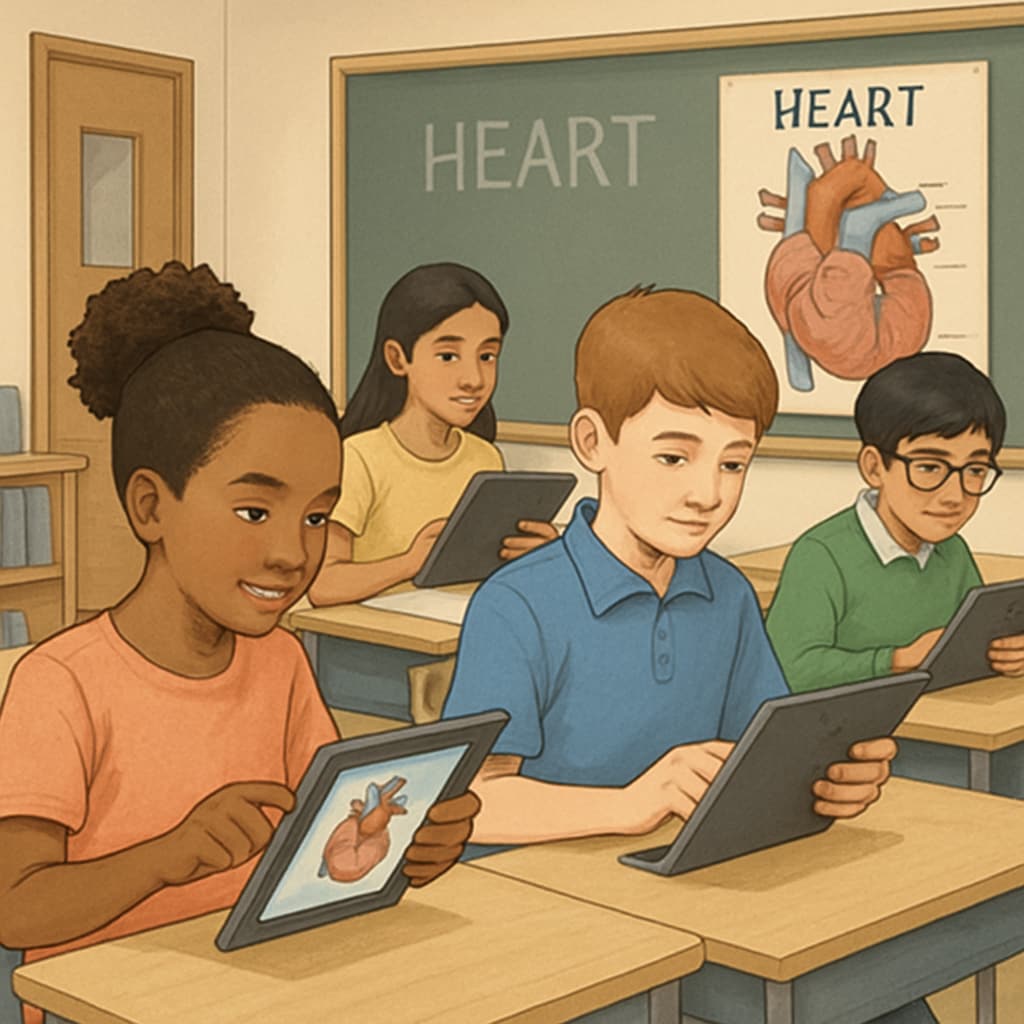In an increasingly health-conscious world, the demand for accessible and accurate medical knowledge is growing. While traditional medical education is geared toward professionals, introducing “Non-Medical Background, Cardiology, Online Courses” into K12 education could revolutionize how students understand and engage with health. By developing a “cross-disciplinary medicine” curriculum, we can empower students with health literacy, build their scientific reasoning, and prepare them for a world where foundational medical knowledge is essential.
Why K12 Students Need Medical Knowledge
Health literacy is no longer optional; it is a survival skill in modern society. The COVID-19 pandemic underscored the importance of understanding basic medical concepts such as infection spread, vaccination, and public health measures. For K12 students, early exposure to medical knowledge can cultivate informed decision-making and critical thinking.
For example, cardiology (the study of the heart and its functions) offers a practical entry point. Lessons on heart health can teach students about exercise, nutrition, and stress management. With accessible resources, such as online courses designed for non-medical audiences, students can engage with the material in a way that is both meaningful and age-appropriate.

Building a Cross-Disciplinary Medicine Curriculum
Developing a curriculum that integrates medical knowledge into K12 education requires careful planning. The “cross-disciplinary medicine” approach combines health science with subjects like biology, chemistry, and even physical education. This curriculum focuses on real-world applications, making lessons relevant and engaging. For instance:
- Interactive Modules: Online platforms can provide interactive cardiology lessons, allowing students to explore the anatomy of the heart through virtual tools.
- Case Studies: Age-appropriate case studies can help students understand medical conditions like hypertension and how lifestyle choices impact heart health.
- Collaborative Projects: Group activities, such as creating public health campaigns on cardiovascular health, can deepen understanding while fostering teamwork.
By integrating such components, K12 students gain not only knowledge but also practical skills that they can apply in their daily lives.

The Role of Online Resources
The rise of e-learning has made it easier than ever to create specialized courses for non-medical audiences. Platforms like Coursera and Khan Academy offer free or affordable medical courses tailored to beginners. For K12 students, such resources can provide a flexible and engaging way to learn. For instance:
- Gamified Learning: Many online courses use gamification to make learning fun, such as quizzes and challenges related to heart health.
- Expert-Led Tutorials: Videos by medical professionals can break down complex concepts, making them easier to understand.
- Personalized Progress: Adaptive learning platforms allow students to progress at their own pace, ensuring they fully grasp each topic.
These resources are not only educational but also inclusive, making medical knowledge accessible to students from diverse backgrounds.
Potential Challenges and Solutions
While the benefits of introducing medical education into K12 curricula are clear, there are challenges to consider:
- Content Complexity: Medical topics can be complex. To address this, educators need to simplify content without losing accuracy.
- Resource Availability: Not all schools have access to the technology needed for online courses. Partnerships with tech companies or NGOs could bridge this gap.
- Teacher Training: Educators may require additional training to effectively teach medical topics. Professional development programs can equip them with the necessary skills.
By anticipating these challenges, schools can create a robust framework for integrating medical education into their curricula.
The Future of K12 Health Education
As we look ahead, the integration of medical knowledge into K12 education represents a significant step forward. By leveraging “Non-Medical Background, Cardiology, Online Courses,” we can prepare students not only for personal health challenges but also for careers in a rapidly evolving world. This innovative approach promises to create a generation of health-literate, scientifically minded individuals ready to tackle the complexities of modern life.
Readability guidance: The article uses concise paragraphs, clear subheadings, and lists to summarize key points. It maintains a balance of technical accuracy and accessibility, ensuring readability for a K12-focused audience.


